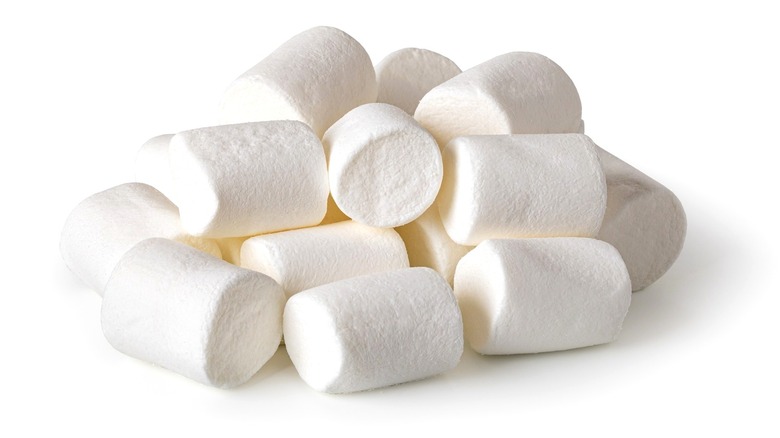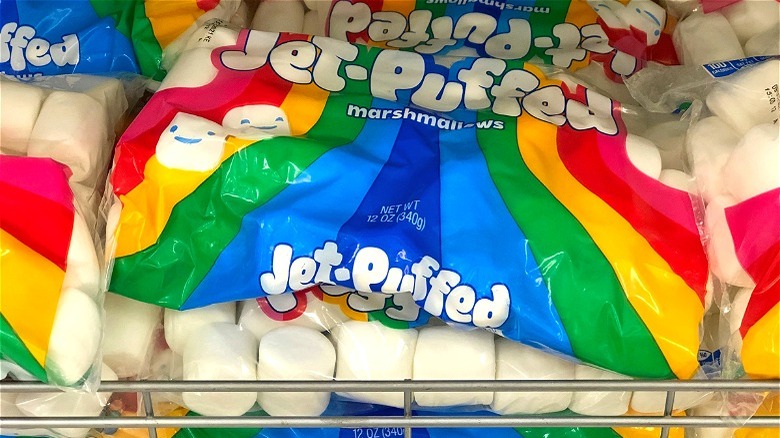The Biggest Marshmallow Mistake You're Making
Whether they're heaped onto hot chocolate or melted with tons of butter for sticky-sweet rice Krispies treats, marshmallows form the basis of many of our favorite desserts. Disappointingly, they don't last forever, and you've probably dreamed up a sweet treat or two only to come across a stale bag of marshmallows in your pantry that you had to defeatedly throw away.
Chances are high that you're familiar with how marshmallows are made; sugar and gelatin are the stars of the show. Fortunately, these shelf-stable ingredients mean that eating a stale marshmallow won't cause harm, but that definitely doesn't make it pleasant to consume (per Prepared Cooks).
There are a few different reasons why marshmallows go south. If you live in a humid environment, they can fuse together in the heat and become increasingly sticky due to excessive moisture. Air exposure also leads to stale marshmallows that harden over time. Leaving your spongey cubes in a cool, dry place is recommended, but there may be an even easier storage method that guarantees fresh, pillowy marshmallows every time.
The hack you've been waiting for when storing marshmallows
While you may have only been roasting your marshmallows wrong through the years, there's also a chance you've made a mistake when it comes to storing an open bag of the light and sugary treats. It's best keep an open bag of marshmallows in an airtight container, but what if you don't have one handy? Meghan Splawn, food editor and co-host of the podcast "Didn't I Just Feed You," has another idea.
Per The Kitchn, Splawn suggests keeping your opened bag of marshmallows fresh by cutting a "U-shape" directly on one side of the bag. That way, when you're done taking what you need, you can tie the corners together into a secure knot that keeps unwanted air out of the bag — no extra equipment necessary. While this trick won't make your marshmallows last forever — the expiration date varies based on brand and preservative content — they are usually safe to consume for up to six months if stored properly (via Foods Guy).

